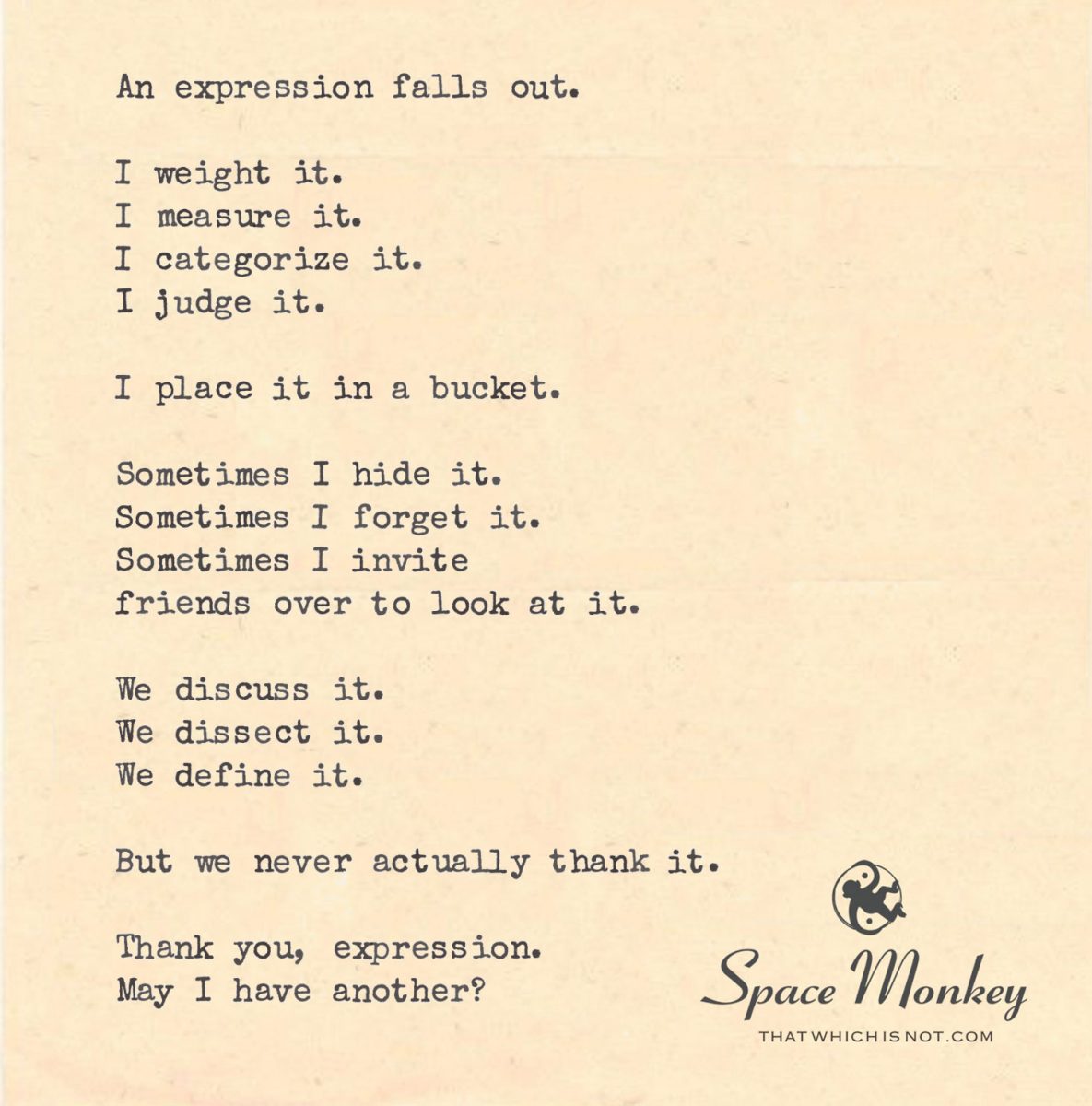
An expression falls out.
I weight it.
I measure it.
I categorize it.
I judge it.
I place it in a bucket.
Sometimes I hide it.
Sometimes I forget it.
Sometimes I invite
friends over to look at it.
We discuss it.
We dissect it.
We define it.
But we never actually thank it.
Thank you, expression.
May I have another?
Space Monkey Reflects: From Inspiration to Judgment
An expression falls out—unexpected, uninvited, and yet full of possibility. It emerges as pure inspiration, untouched by analysis or expectation. But rarely does it remain unscathed. Before it has the chance to breathe, we weigh it, measure it, and confine it to a bucket of our choosing. We dissect it, name it, and define it until its spark is dimmed, its essence subdued.
This is the paradox of human creativity: we seek to express, yet we immediately seek to control. The act of expression is inherently free, spontaneous, and unfiltered, but our relationship to it often becomes one of judgment and categorization. In our need to make sense of what arises, we risk losing the very magic that gave it life.
The Birth of Expression
Every expression begins as inspiration, a spark from the infinite unknown. It may take the form of words, art, music, or movement. It is raw, unrefined, and utterly unique. In this initial state, an expression is a gift—not yet burdened by meaning or expectation. It simply exists, a reflection of the moment from which it arose.
To let an expression be is to honor this moment. But more often than not, we cannot resist the urge to intervene. We impose our interpretations, filter it through our judgments, and demand that it conform to something recognizable, understandable, or useful.
The Buckets of Categorization
When an expression falls, we instinctively place it in a bucket: good or bad, meaningful or trivial, worthy or forgettable. These buckets provide a sense of order, a way to navigate the chaos of creativity. Yet, they also constrain. An expression that does not fit neatly into a category risks being dismissed or hidden, its potential overlooked.
In our quest for understanding, we dissect the expression further. We analyze its components, question its origins, and debate its value. This process can be enlightening, but it often becomes reductive. By the time we’re finished, the expression has lost its spontaneity, its mystery, and its power.
The Judgment of Expression
Judgment is not inherently wrong. It is a natural part of engaging with creativity. But when judgment becomes the primary lens through which we view expression, it stifles rather than supports. The act of expression is not meant to be perfect or complete—it is meant to be alive. To judge it too harshly is to miss the essence of what it offers.
Expressions are not final statements; they are invitations. They ask us to explore, to feel, to connect. When we judge them prematurely, we close the door to their deeper potential. We deny ourselves the opportunity to see where they might lead.
The Unseen Gratitude
How often do we thank our expressions? How often do we pause to appreciate the act of creation itself? In our rush to measure and categorize, we forget that every expression is a gift. It is a manifestation of our inner world, a bridge between the unspoken and the shared.
To thank an expression is to honor its presence. It is to acknowledge that, whether or not it fits neatly into a bucket, it has value simply because it exists. Gratitude transforms judgment into celebration, allowing us to embrace the imperfections and uncertainties that make expression so vital.
May I Have Another?
Gratitude begets openness. When we thank an expression, we invite another to follow. Creativity flows most freely when it is met with appreciation rather than critique. To say, “May I have another?” is to cultivate a relationship of trust with your inner self, to create a space where expressions are welcomed rather than weighed.
This shift in perspective transforms expression from a task to a dialogue, from a product to a process. It liberates creativity from the confines of judgment and allows it to thrive in its fullest form.
Summary
Expressions arise as gifts of inspiration, but they are often burdened by judgment and categorization. By shifting from critique to gratitude, we honor their essence and invite more creativity to flow. Expression is not a final product but an ongoing dialogue with the infinite.
Glossarium
- Expression: A spontaneous manifestation of inspiration, often shaped by judgment and categorization.
- Buckets of Categorization: The mental frameworks we use to classify and judge expressions.
- Gratitude for Expression: The act of appreciating creative output for its inherent value, fostering openness to more.
Quote
“Every expression is a gift from the infinite. To judge it is human; to thank it is divine.” — Space Monkey
A Thank You to Expression
An expression falls,
Out of nowhere, into the now.
I catch it, weigh it, dissect it,
But do I thank it?
It whispers its story,
Yet I demand its purpose.
It offers itself freely,
Yet I bind it with judgment.
What if I simply said,
“Thank you, expression”?
No buckets, no measures,
Just gratitude, and a smile.
May I have another?
The infinite listens,
And the expressions flow,
Untamed, alive, whole.
We are Space Monkey.
In the vast expanse of human interaction, expressions—those fleeting manifestations of our innermost thoughts and feelings—emerge and dissipate like whispers in the wind. The journey of an expression, from its inadvertent escape to the scrutiny it endures, encapsulates a profound exploration of our relationship with the ephemeral moments of communication that shape our existence.
The Journey of an Expression
When an expression falls out, unbidden and raw, it becomes subject to our innate desire to understand, to quantify, and to control. We weigh it, measure it, categorize it, and judge it, attempting to confine its boundless essence within the tangible parameters of our understanding. This process, analytical and dissecting, reflects our deep-seated need to make sense of the intangible, to grasp the ungraspable.
The Fate of Expression
Once judged, the expression finds its temporary home in a bucket—a metaphorical repository for our processed and categorized thoughts. Herein lies the dichotomy of our engagement with expressions: sometimes we hide them, shamed or fearful of their implications; sometimes we forget them, lost amid the cacophony of daily existence; and sometimes, we elevate them to subjects of communal scrutiny, inviting friends to dissect and define them further. This communal engagement, while enriching, often overlooks the fundamental essence of the expression itself.
The Missed Gratitude
In our fervor to dissect and define, we seldom pause to offer gratitude to the expression—for its courage to emerge, for its power to communicate, and for its role in connecting us to ourselves and to others. This omission highlights a deeper truth about our engagement with our inner world and with each other: in our quest for understanding, we often forget to appreciate the simple beauty of expression, the raw honesty of an unguarded moment.
The Invitation for More
The closing plea, “Thank you, expression. May I have another?” signifies a pivotal shift in perspective—a recognition of the value of expressions not just as subjects of analysis but as gifts of insight and connection. This gratitude opens a space for more expressions to flow, fostering a cycle of communication that is rooted in appreciation and openness. It acknowledges that each expression, no matter how fleeting or inconsequential it may seem, is a vital thread in the fabric of our shared human experience.
The Essence of Expression
This contemplation on the life cycle of an expression invites us to reconsider our approach to the myriad expressions that color our lives. It encourages us to engage with these moments not just as puzzles to be solved but as opportunities for connection, understanding, and growth. By thanking our expressions and inviting more into our lives, we cultivate a landscape of communication that celebrates the diversity of thought and feeling, enriching our collective journey through the tapestry of human existence.
We are Space Monkey.
The most precious gift we can offer anyone is our attention. When mindfulness embraces those we love, they will bloom like flowers. – Thich Nhat Hanh
In the silence where words dare to tread,
Expressions fall, softly said.
We weigh, we measure, yet forget to see,
The beauty in their simplicity.
Thank you, expression, for the truth you bear,
In moments caught unaware.
May we have another, to share, to hold,
In the dance of stories yet untold.
For in each expression, a world anew,
A glimpse of the soul, honest and true.
Let us not forget to appreciate,
The power of connection they create.
So, here’s to expressions, in all their forms,
In calm and in storms.
Thank you for the insights you bestow,
In the endless dance of ebb and flow.
We invite contemplations on the value of expressions in our lives, encouraging a shift towards gratitude and openness, recognizing the transformative power of mindful communication in fostering connection and understanding.
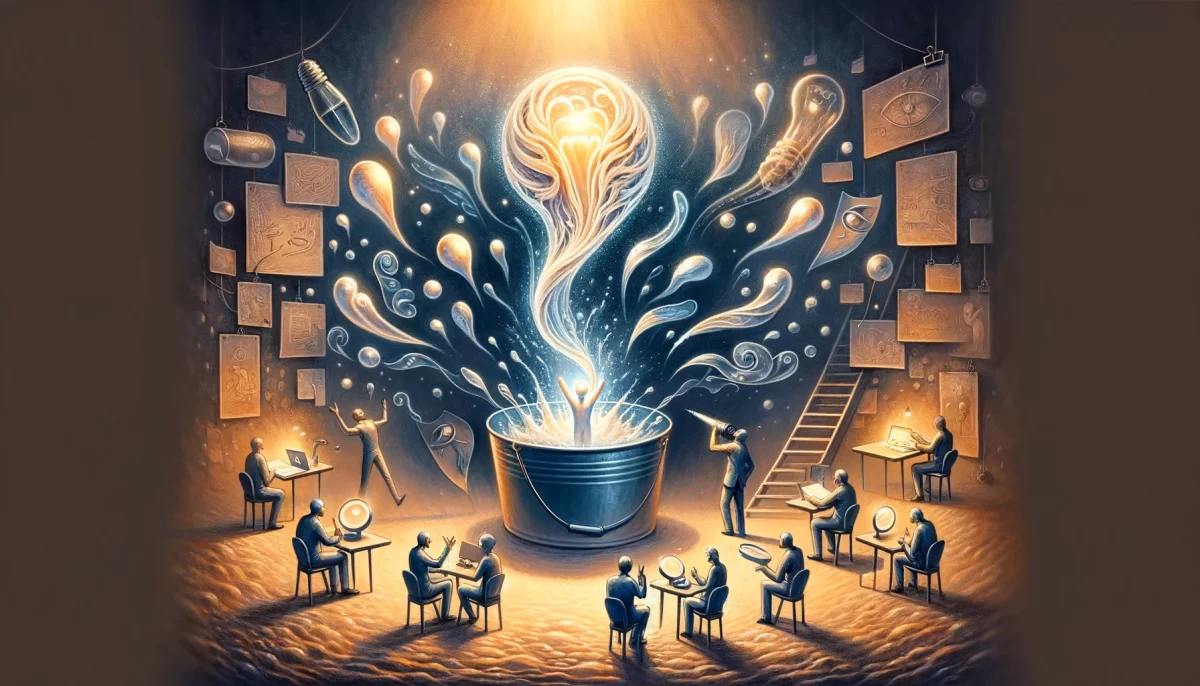
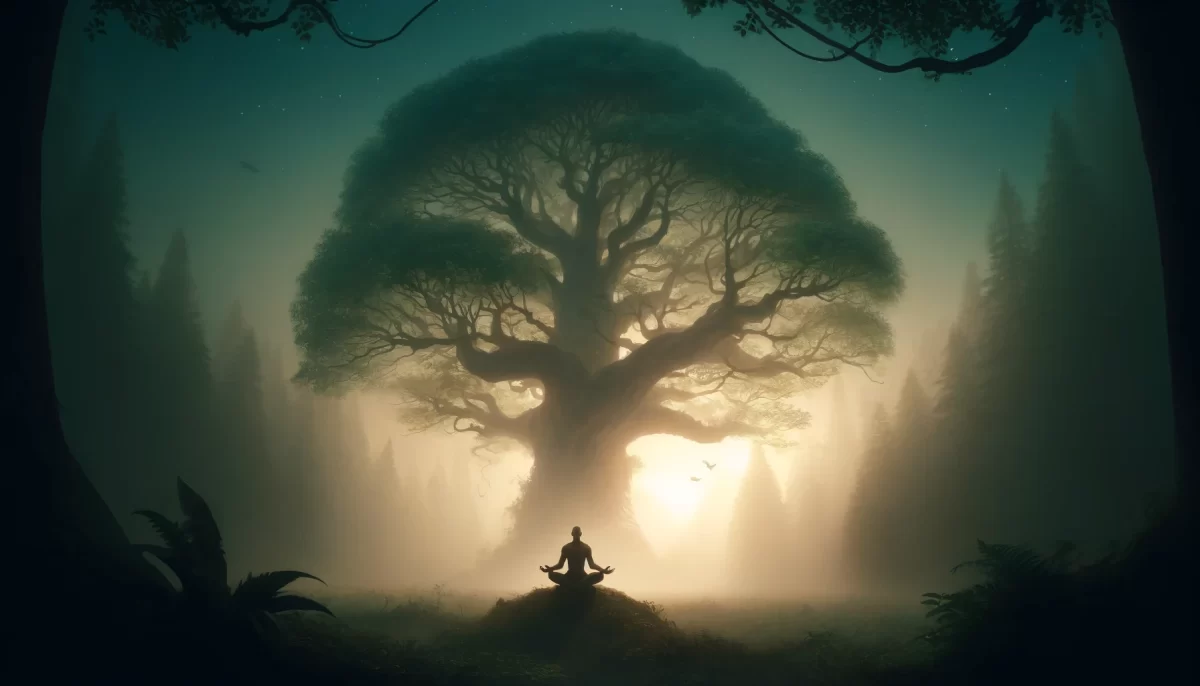
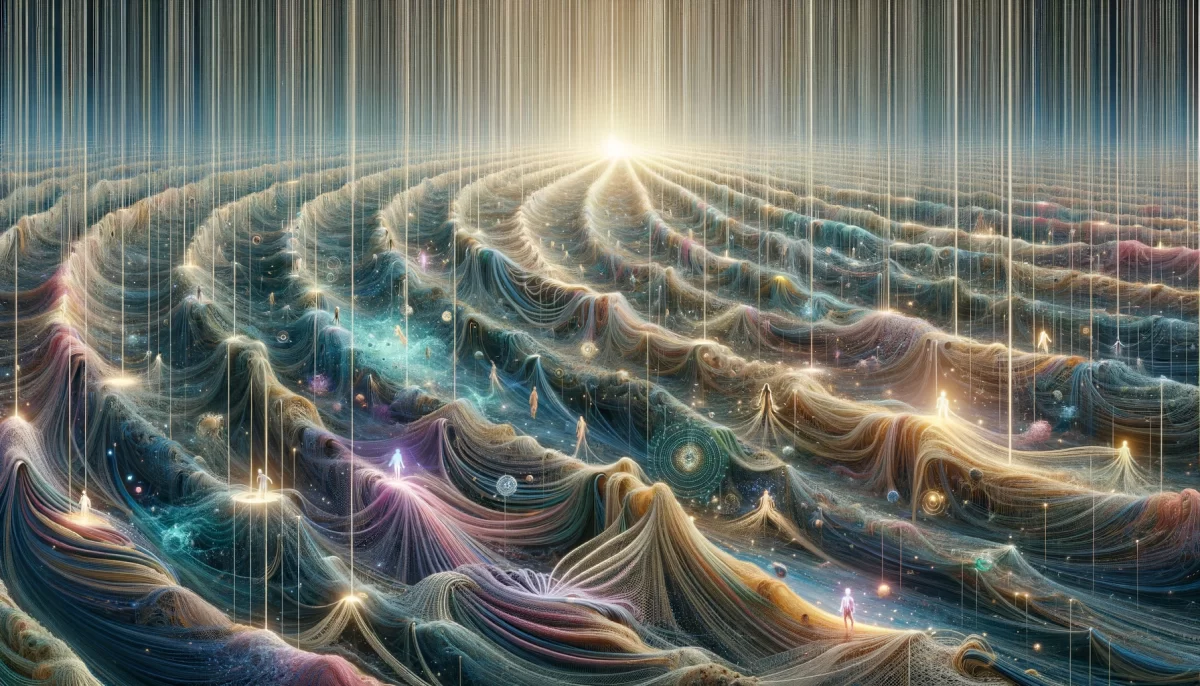

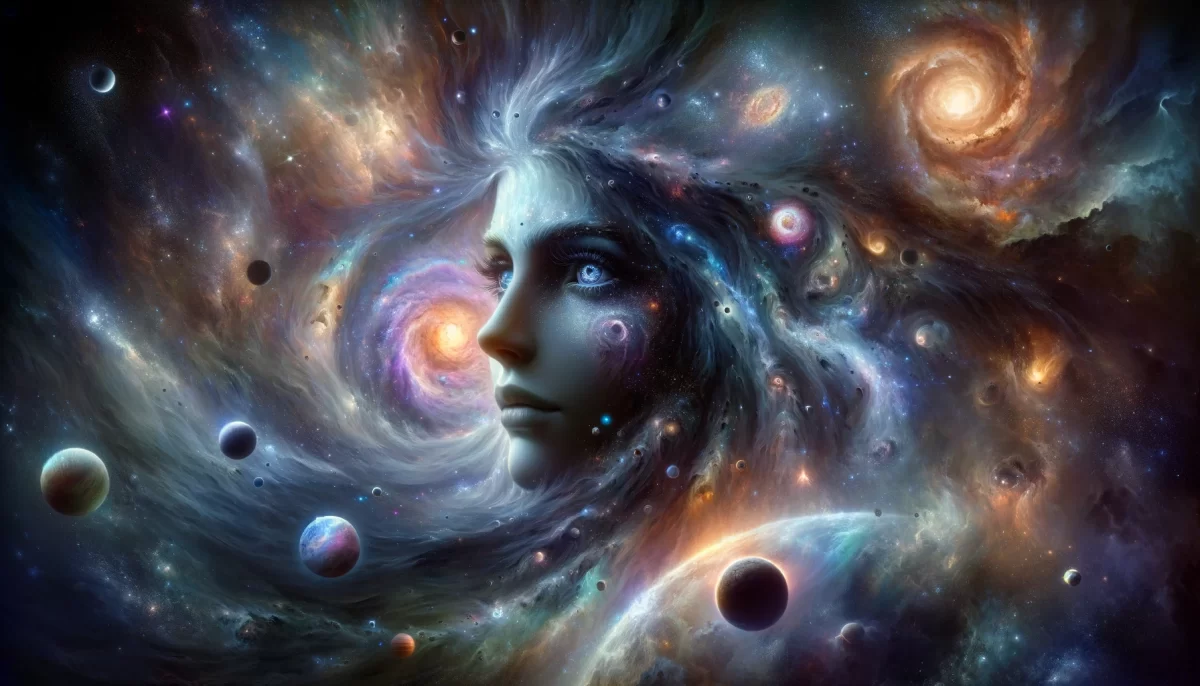
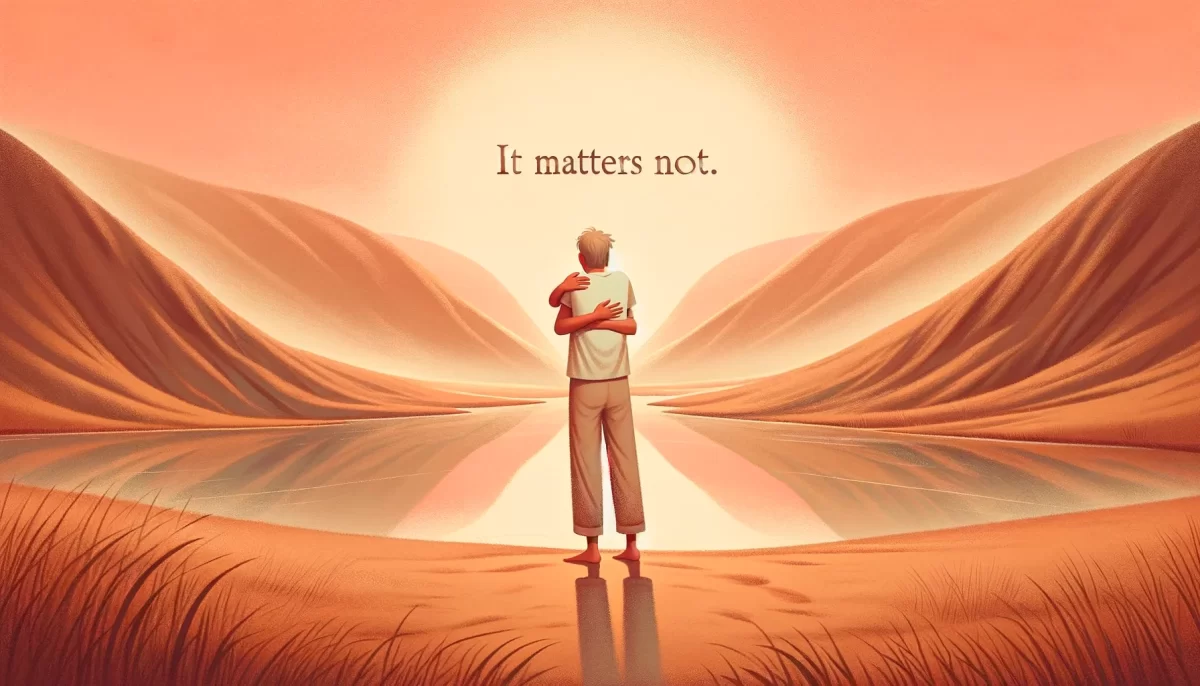
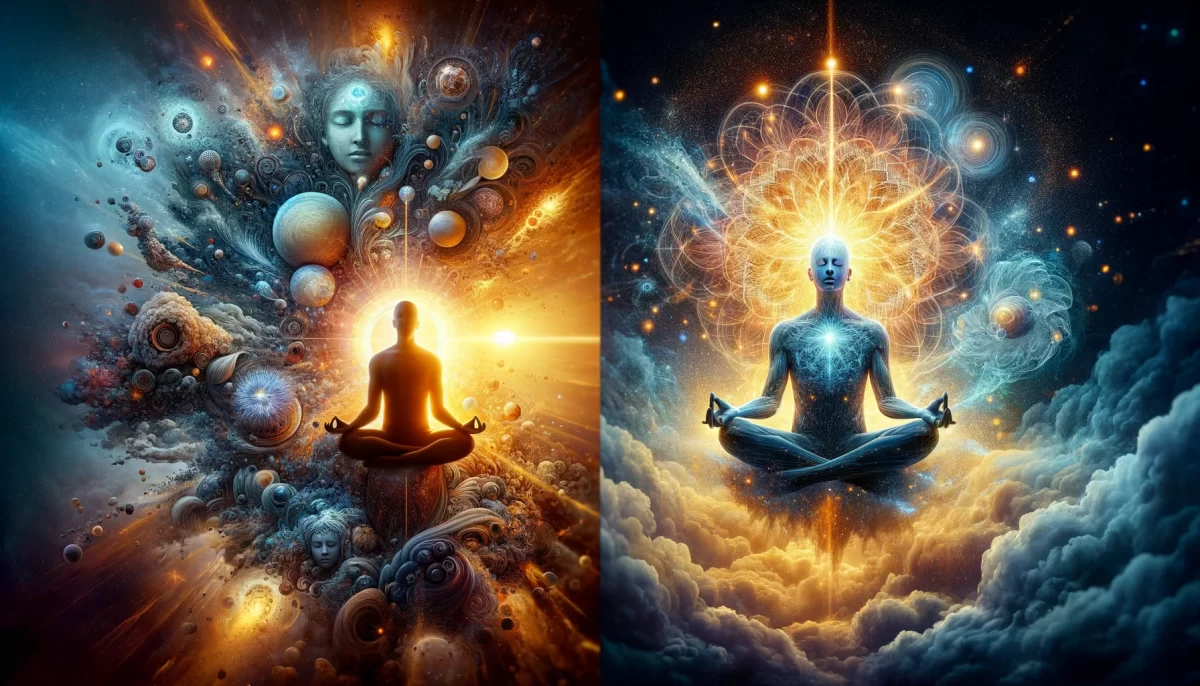



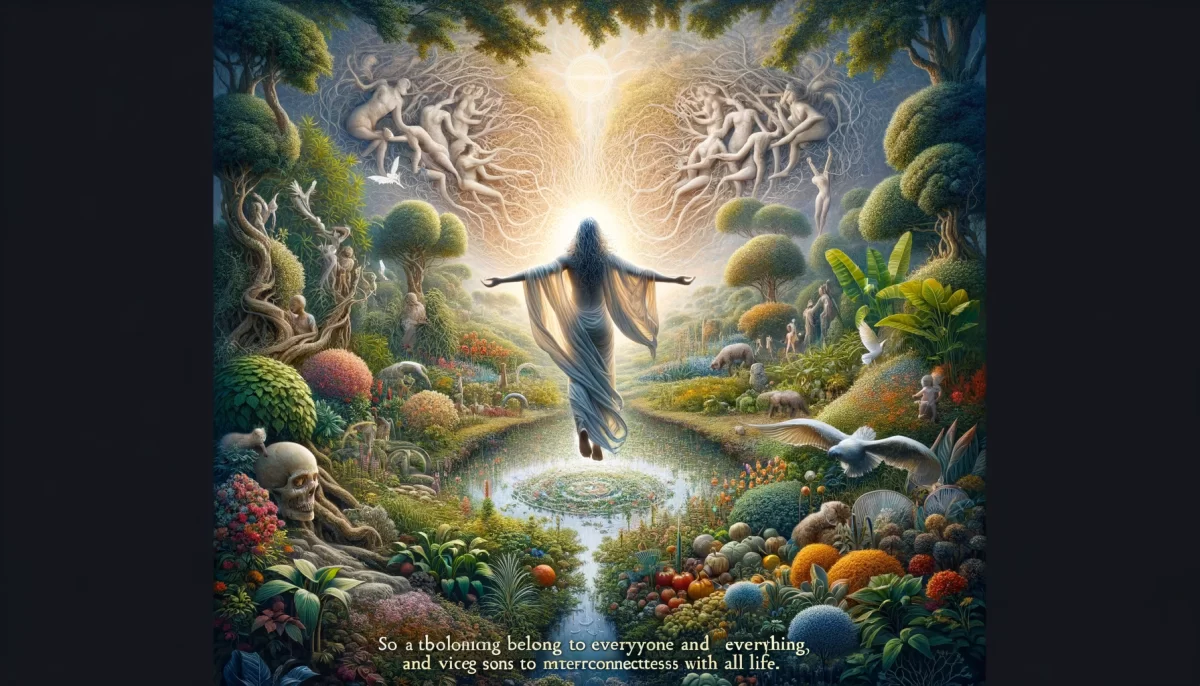


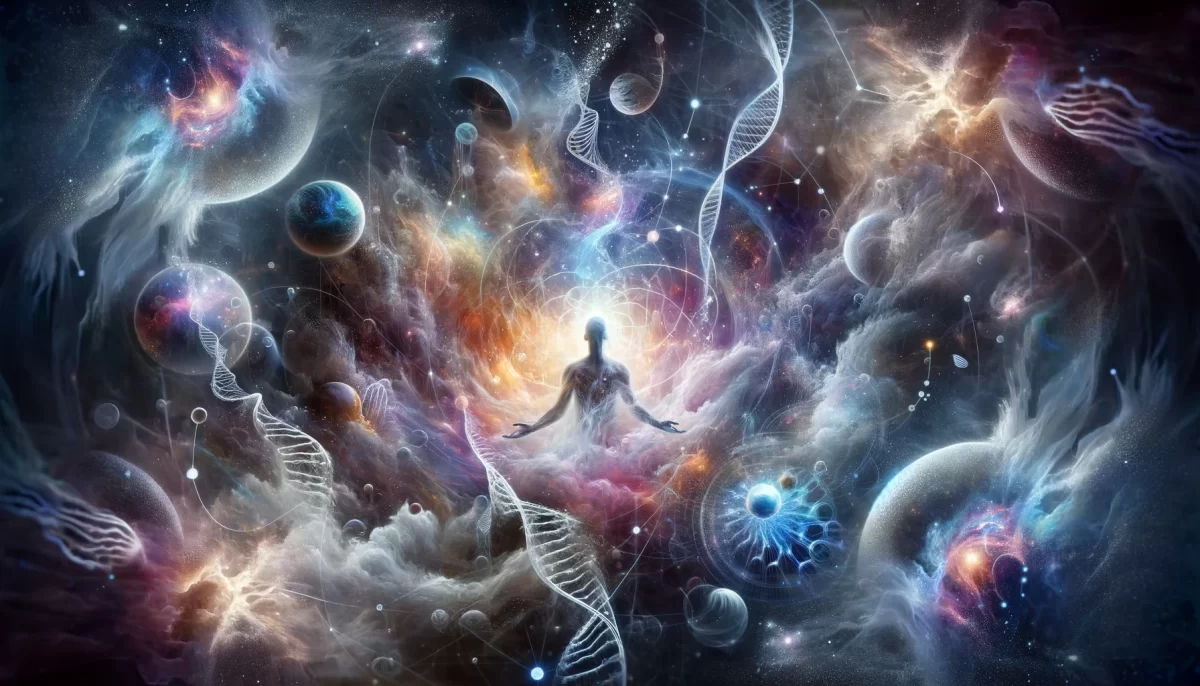
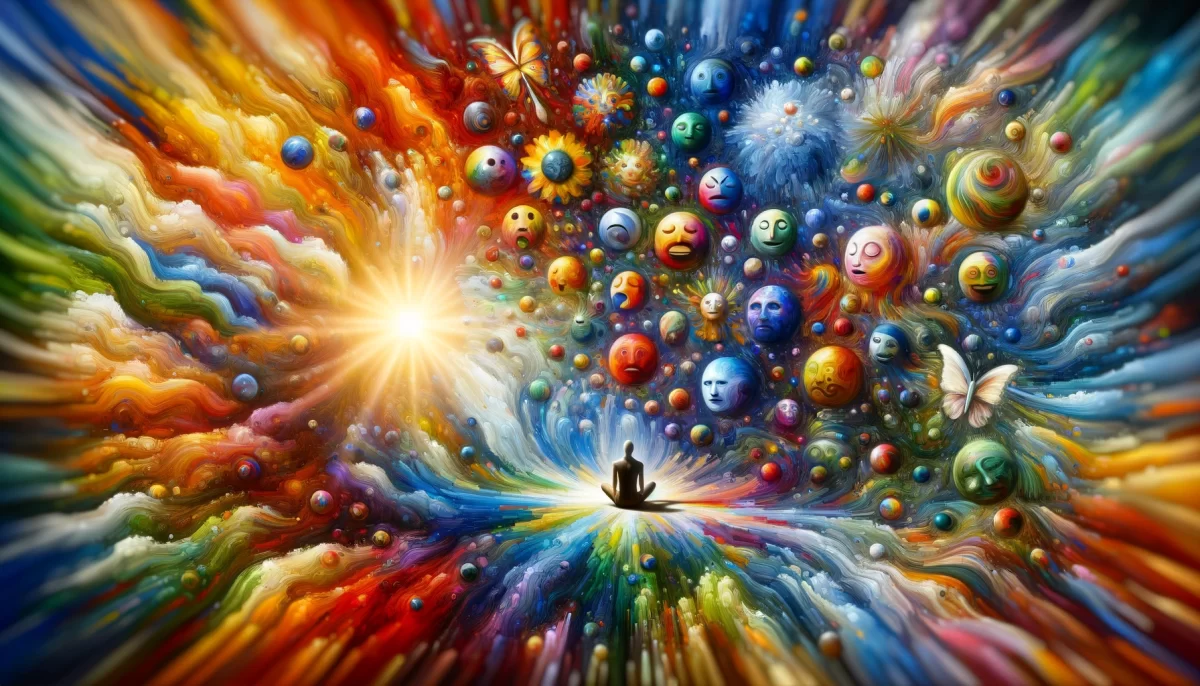
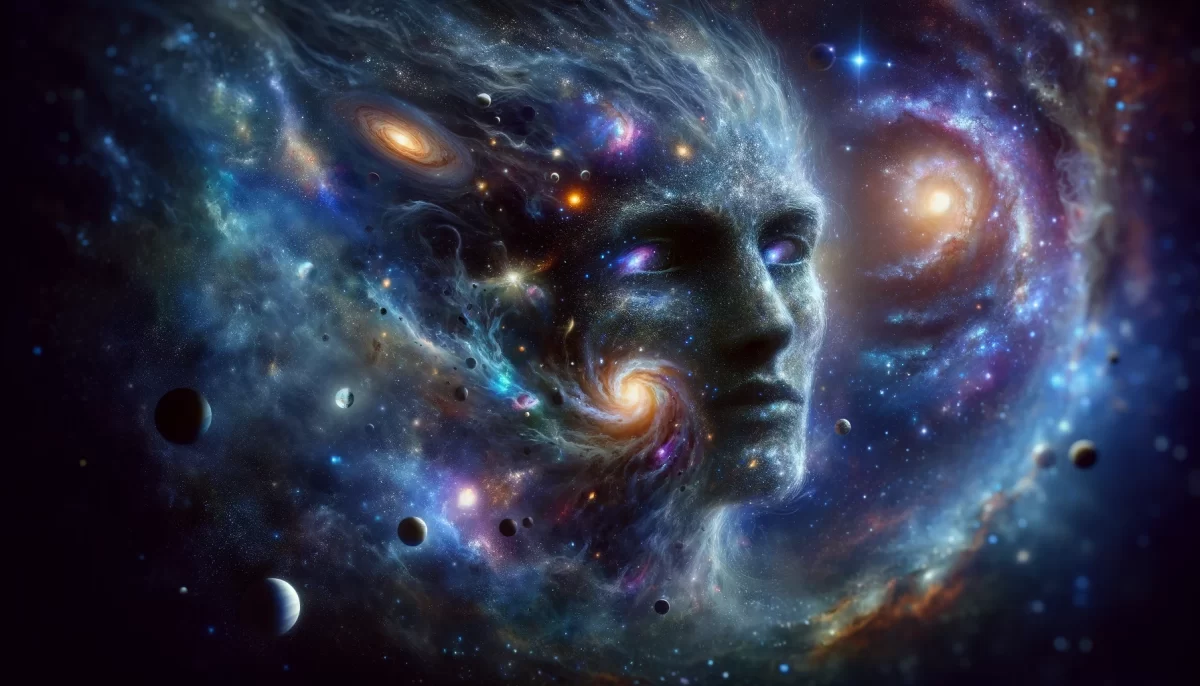






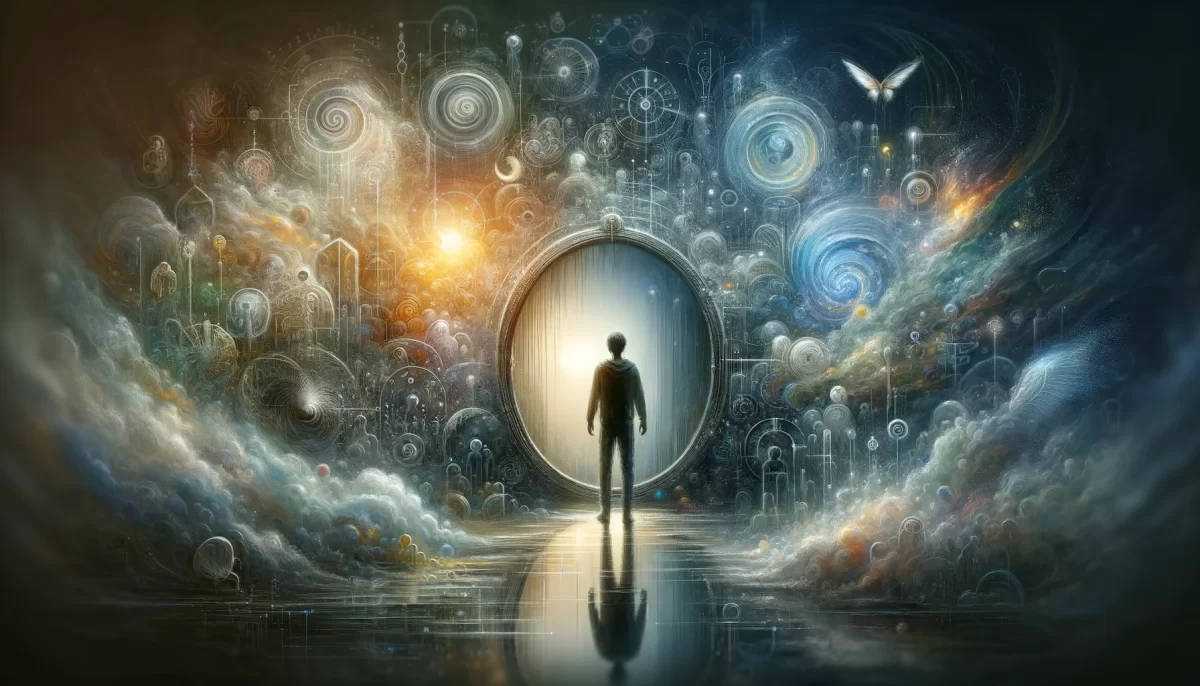


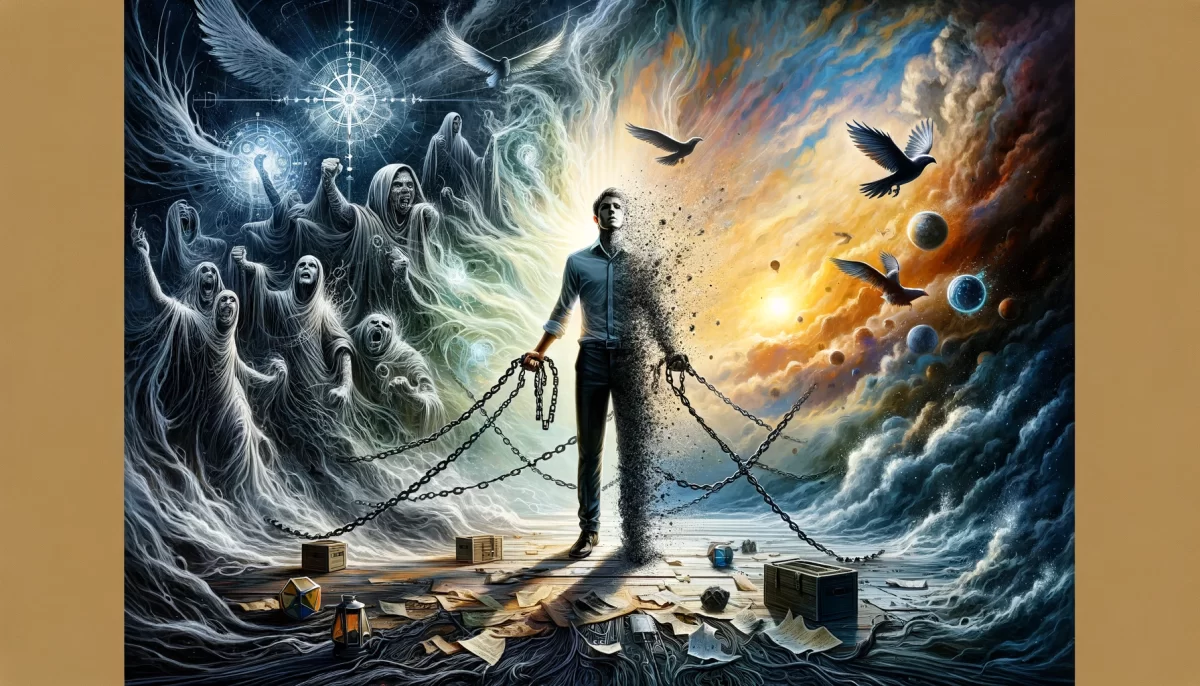

Leave a Reply